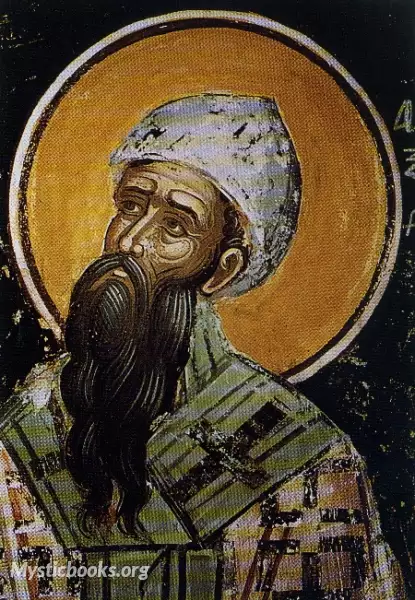
Timeline
Title
Country/Nationality
Cyril of Alexandria
Cyril of Alexandria was the Patriarch of Alexandria from 412 to 444. He was enthroned when the city was at the height of its influence and power within the Roman Empire. Cyril wrote extensively and was a leading protagonist in the Christological controversies of the late-4th and 5th centuries. He was a central figure in the Council of Ephesus in 431, which led to the deposition of Nestorius as Patriarch of Constantinople. Cyril is counted among the Church Fathers and also as a Doctor of the Church, and his reputation within the Christian world has resulted in his titles Pillar of Faith and Seal of all the Fathers. The Roman emperor Theodosius II, however, condemned him for behaving like a "proud pharaoh", and the Nestorian bishops at their synod at the Council of Ephesus declared him a heretic, labelling him as a "monster, born and educated for the destruction of the church."
Cyril is well known for his dispute with Nestorius and his supporter, Patriarch John of Antioch, whom Cyril excluded from the Council of Ephesus for arriving late. He is also known for his expulsion of Novatians and Jews from Alexandria and for inflaming tensions that led to the murder of the Hellenistic philosopher Hypatia by a Christian mob. Historians disagree over the extent of his responsibility in this.
Cyril tried to oblige the pious Christian emperor Theodosius II (AD 408–450) to himself by dedicating his Paschal table to him. It is also important to note that Cyril's Paschal table was provided with a Metonic basic structure in the form of a Metonic 19-year lunar cycle adopted by him around AD 425, which was very different from the first Metonic 19-year lunar cycle invented around AD 260 by Anatolius, but exactly equal to the similar lunar cycle which had been introduced around AD 412 by Annianus; the Julian equivalent of this Alexandrian lunar cycle adopted by Cyril and nowadays referred to as the 'classical 19-year lunar cycle' would only much later emerge again: a century later in Rome as the basic structure of Dionysius Exiguus’ Paschal table and two more centuries later in England as the one of Bede's Easter table .
The Catholic Church did not commemorate Saint Cyril in the Tridentine Calendar: it added his feast only in 1882, assigning to it the date of 9 February. This date is used by the Western Rite Orthodox Church. Yet the 1969 Catholic Calendar revision moved it to 27 June, considered to be the day of the saint's death, as celebrated by the Coptic Orthodox Church. The same date has been chosen for the Lutheran calendar. The Eastern Orthodox and Byzantine Catholic Churches celebrate his feast day on 9 June and also, together with Pope Athanasius I of Alexandria, on 18 January.
Cyril is remembered in the Church of England with a commemoration on 28 June.
Little is known for certain of Cyril's early life. He was born circa 376, in the town of Didouseya, Egypt, modern-day El-Mahalla El-Kubra.[8] A few years after his birth, his maternal uncle Theophilus rose to the powerful position of Patriarch of Alexandria. His mother remained close to her brother and under his guidance, Cyril was well educated. His writings show his knowledge of Christian writers of his day, including Eusebius, Origen, Didymus the Blind, and writers of the Church of Alexandria. He received the formal Christian education standard for his day: he studied grammar from age twelve to fourteen rhetoric and humanities from fifteen to twenty and finally theology and biblical studies .
Cyril was a scholarly archbishop and a prolific writer. In the early years of his active life in the Church he wrote several exegetical documents. Among these were: Commentaries on the Old Testament, Thesaurus, Discourse Against Arians, Commentary on St. John's Gospel, and Dialogues on the Trinity. In 429 as the Christological controversies increased, the output of his writings was so extensive that his opponents could not match it. His writings and his theology have remained central to the tradition of the Fathers and to all Orthodox to this day.
Books by Cyril of Alexandria
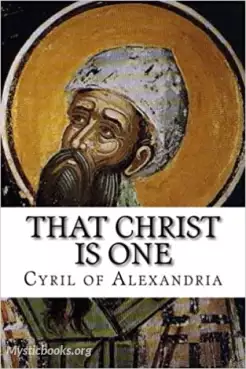
That Christ Is One
THAT CHRIST IS ONE by way of dispute with Hermias [Translated by P. E. Pusey] Wrong thought of Christ either before the Incarnation or when Incarnate. Nestorius. If Virgin not Mother of God, Christ not God. Objection to the word "was made." He takes...
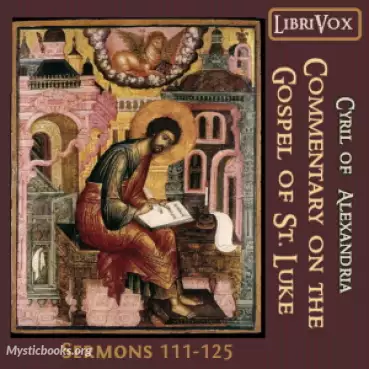
Commentary on the Gospel of Luke, Sermons 111-125
Sermons 111 through 125 cover the Gospel According to Luke 16:19 through 18:34.
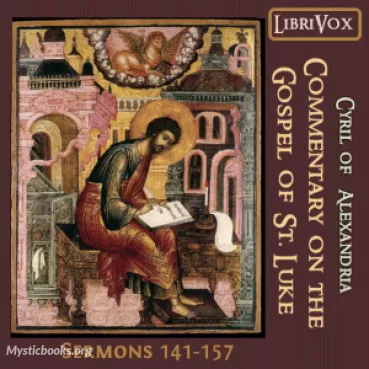
Commentary on the Gospel of Luke, Sermons 141-157
It is a commentary on the Gospel of Luke, one of the four canonical gospels in the New Testament. This book was written in the 5th century and provides a detailed analysis of the Gospel of Luke. Cyril of Alexandria was a highly respected bishop and...
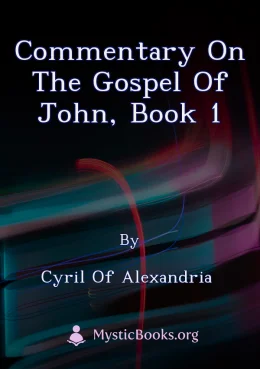
Commentary on the Gospel of John, Book 1
Cyril of Alexandria's *Commentary on the Gospel of John, Book 1* provides a detailed exegetical analysis of the first 28 verses of the Gospel of John, focusing on key themes such as the divine nature of Christ, the role of the Word, and the significa...
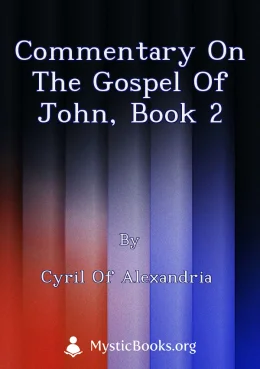
Commentary on the Gospel of John, Book 2
Cyril of Alexandria's 'Commentary on the Gospel of John' is a foundational work of Christian theology. Book 2, covering John 1:29-5:34, delves into crucial themes such as the identity of Christ, the relationship between the divine and human natures,...
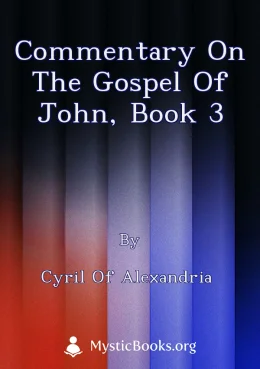
Commentary on the Gospel of John, Book 3
Cyril of Alexandria's 'Commentary on the Gospel of John, Book 3' delves into the third section of John's Gospel, specifically covering the verses from John 5:35 to 6:37. This section examines key themes such as the role of John the Baptist as a witn...
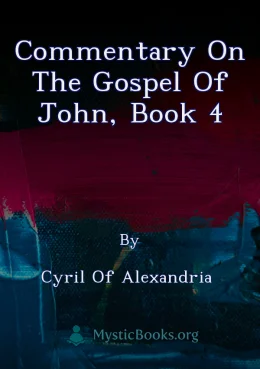
Commentary on the Gospel of John, Book 4
Cyril of Alexandria's Commentary on the Gospel of John, Book 4, is an exegetical work that offers a detailed analysis and interpretation of John 6:38 - 7:24. Cyril, a prominent theologian and patriarch of Alexandria, provides insights into the histor...
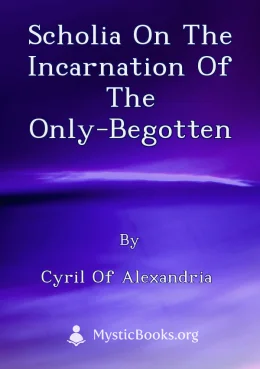
Scholia on the Incarnation of the Only-Begotten
This book presents a collection of thirty-seven short articles by Cyril of Alexandria, an early Christian theologian, on the subject of the incarnation of Jesus Christ. Cyril was a prominent figure in the Christological debates of the 5th century, an...
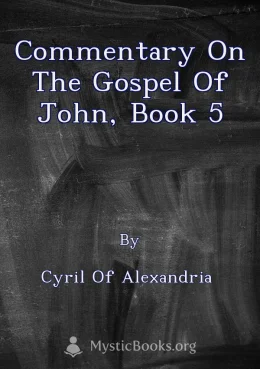
Commentary on the Gospel of John, Book 5
Commentary on the Gospel of John, Book 5 is a valuable resource for students and scholars of the Bible, patristics, and early Christian thought. Cyril's commentary offers a rich and insightful interpretation of John's Gospel, providing a glimpse into...
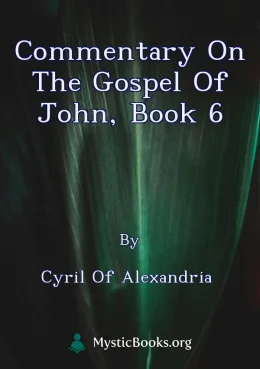
Commentary on the Gospel of John, Book 6
Cyril of Alexandria's Commentary on the Gospel of John, Book 6, delves into the sixth book of his comprehensive analysis of the Gospel of John, covering verses John 8:44-10:17. This volume meticulously examines key themes within these passages, inclu...
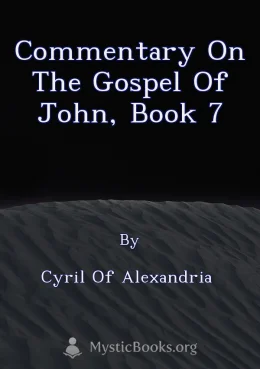
Commentary on the Gospel of John, Book 7
This book is a commentary on the Gospel of John by Cyril of Alexandria, one of the most important Church Fathers of the early Church. Cyril's commentary is a valuable source for understanding the early Christian understanding of the Gospel of John. I...
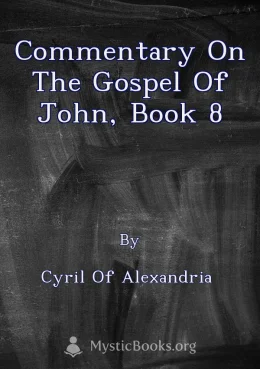
Commentary on the Gospel of John, Book 8
Cyril of Alexandria's 'Commentary on the Gospel of John' is a pivotal work of early Christian exegesis. This specific fragment, Book 8, focuses on John 12:3-12:48, offering Cyril's detailed and insightful interpretation of key events and teachings wi...
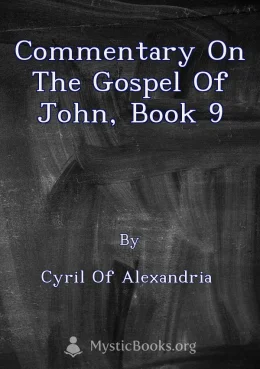
Commentary on the Gospel of John, Book 9
This volume presents Book 9 of Cyril of Alexandria's Commentary on the Gospel of John, which covers John 12:49 - 14:20. Cyril, a prominent theologian of the early Church, offers a detailed exegesis of the text, expounding on the themes of Christ's di...
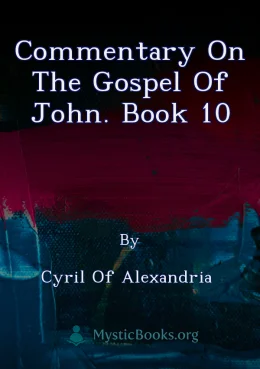
Commentary on the Gospel of John. Book 10
This book, Commentary on the Gospel of John, offers an in-depth analysis and interpretation of John 14:21 to 16:13. Cyril of Alexandria presents his insights into the profound teachings of Jesus in this section of the Gospel, exploring themes of love...
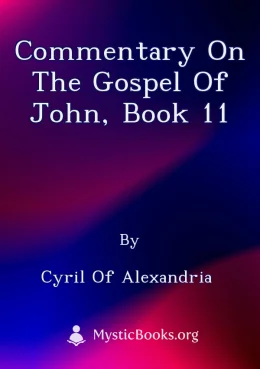
Commentary on the Gospel of John, Book 11
Cyril of Alexandria's "Commentary on the Gospel of John" is a major work of early Christian exegesis, offering a detailed and insightful analysis of the Gospel of John. This particular volume focuses on the key verses from John 16:14 to 18:23, addres...
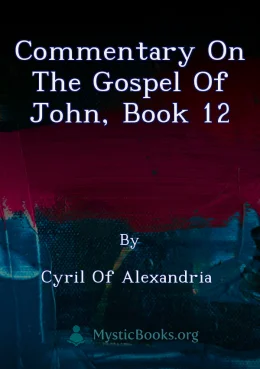
Commentary on the Gospel of John, Book 12
Cyril of Alexandria's 'Commentary on the Gospel of John', Book 12, delves into the final chapters of the Gospel of John, covering the period from Jesus' arrest to his resurrection. Cyril, a prominent 5th century theologian, provides a detailed exege...
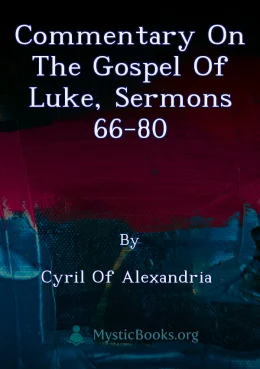
Commentary on the Gospel of Luke, Sermons 66-80
This volume contains sermons 66 through 80 from Cyril of Alexandria's Commentary on the Gospel of Luke, covering the Gospel of Luke 10:22 to 11:18. Cyril's sermons are known for their exegetical depth, theological insights, and practical applications...